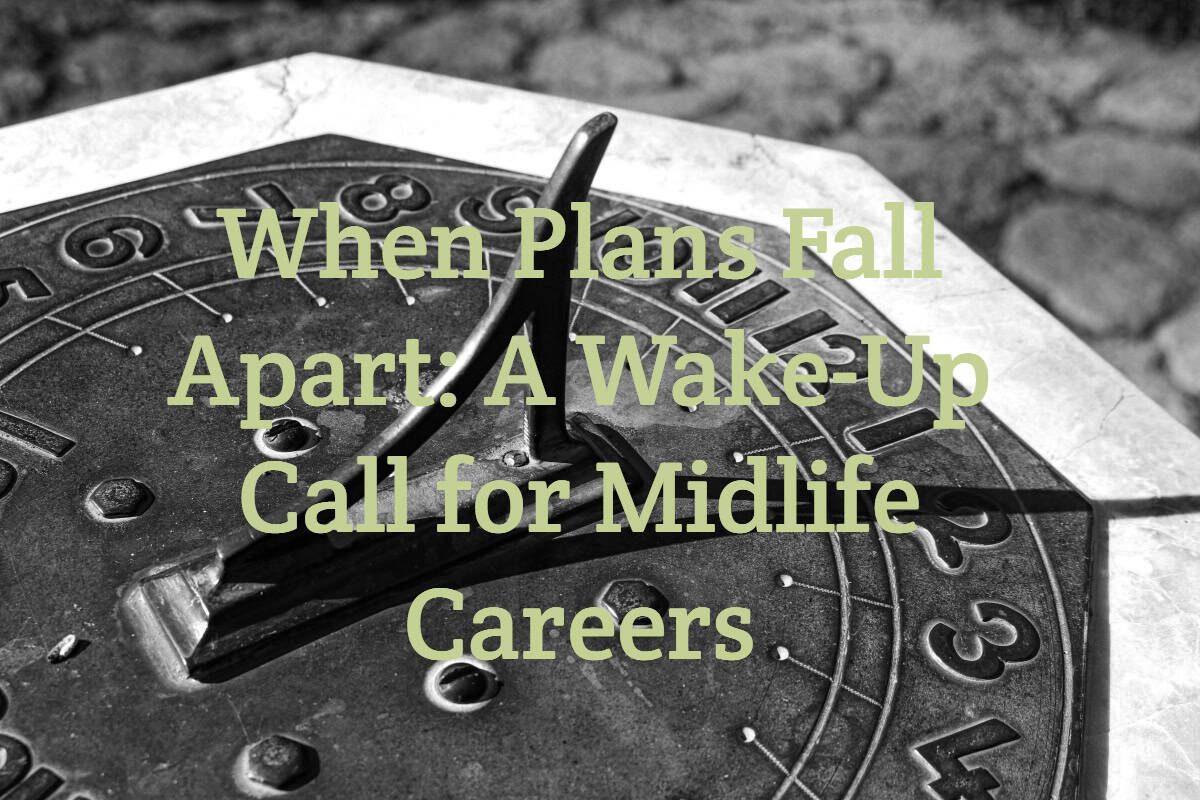Why read this? Because after nearly five decades of working life, as a psychologist, coach, and writer, I’ve seen how rarely careers follow the straight path people expect. I’ve worked with clients in midlife who planned to keep going until 60 or 65, only to find restructuring, redundancy, or health shifted the timeline.
My perspective bridges lived experience with professional insight. I know the impact these sudden changes can have, not just financially but on identity and confidence. That’s why I wrote this article: to offer a wake-up call about midlife careers, and some practical ways to stay prepared when plans unravel.
A friend recently wrote to me with difficult news.
At 53, she has just been told her job will disappear in February 2026. For more than a decade she has been highly paid in a niche field, respected as an expert in work that many others found too complex. She had her future mapped out carefully. The plan was to work until 60, when her investments would mature, then manage the gap until her state pension. It was all thought through.
Until it wasn’t.
The company is changing, and her kind of expertise will no longer be needed. Finding a similar role is unlikely. Finding one at the same salary, almost impossible. She is now facing the same reality many people in midlife discover: sometimes it isn’t us who chooses when we stop.
This isn’t just her story. I know many who have worked hard, invested in their careers, and assumed they would carry on until they decided to leave. But redundancy, restructuring, health issues, or family responsibilities can all shatter those plans. And the world of work is shifting quickly.
AI, automation, offshoring. A slowing economy. Fewer jobs, and greater competition. We hear about graduates struggling to enter the market, but midlife professionals are also feeling the ground shift beneath them. Even if you’ve been earning £60,000 a year, a sudden job loss can mean fighting for work at half that salary – while still carrying the weight of mortgages, children in education, or caring for elderly parents.
It’s not easy. And it’s tempting to slip into “if only.” If only I hadn’t taken on new debt. If only I hadn’t assumed security. My friend has just bought a new car – a beautiful one, but not essential. She now sees it differently, because uncertainty has landed on her doorstep.
If I could write a message to my younger self, it would be this: never assume your income is guaranteed. Jobs end. Markets shift. Life throws curveballs.
So what can we do, realistically, in our 40s, 50s, and beyond?
Three things matter most:
-
Live within your means. Build a cushion. Avoid unnecessary debt. Think twice before locking yourself into long-term payments for things you don’t truly need.
-
Save and stay flexible. The more you have in reserve, the more choices you’ll keep if your career path suddenly changes.
-
Keep your eyes open. Pay attention to what’s happening in your industry. Are there signs of decline or change? Don’t be the last to notice the writing on the wall.
None of us can be fully prepared for every twist of life. But we can hold ourselves steady by staying alert, living with a margin of safety, and remembering that security is never absolute.
It may not be the article anyone wants to read. But perhaps it is the one many of us need.





